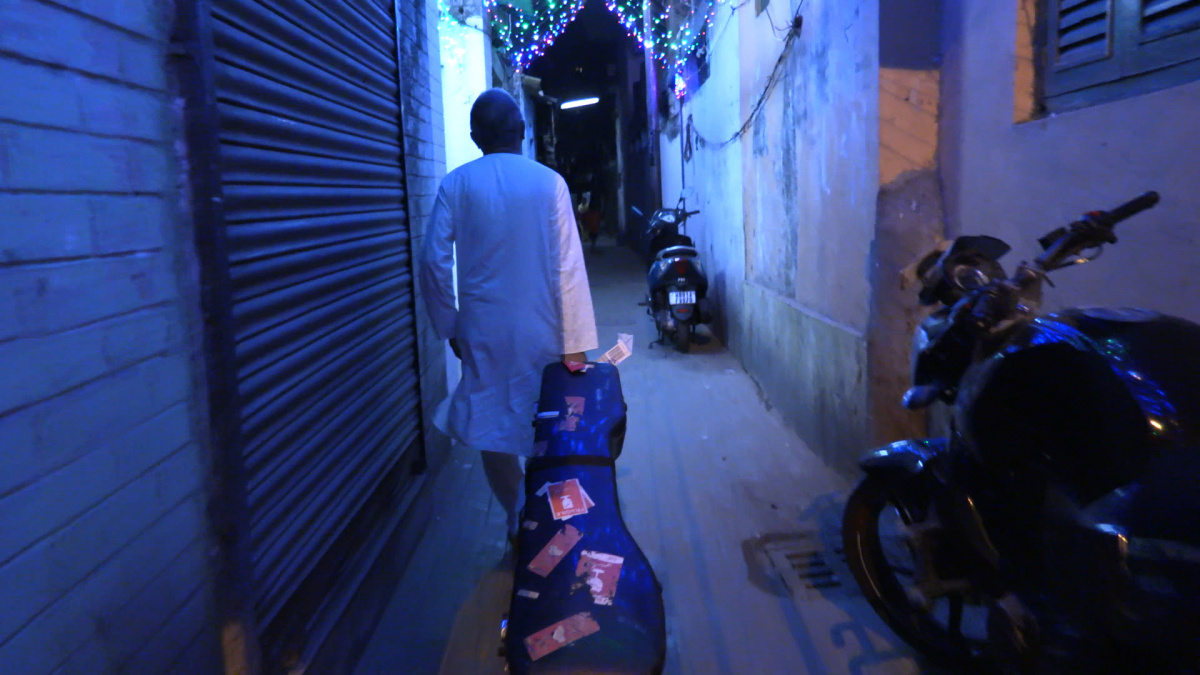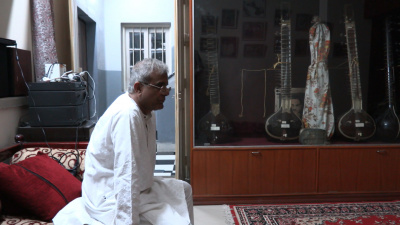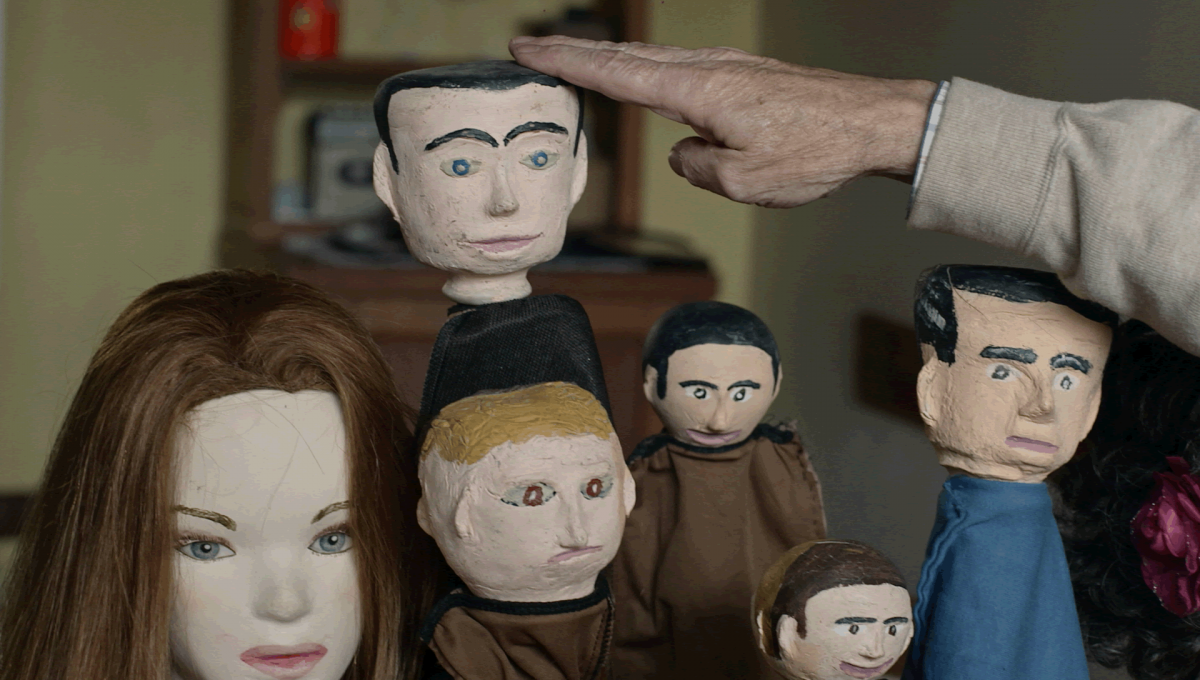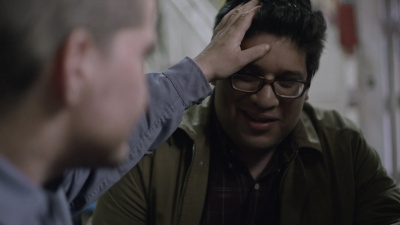
Blood Is Thinner Than Money
North Indian classical music was once exclusively performed for the upper class. Today, it is for everyone, yet it is faced with the demands of the 21st century: The constant imperative to self-promote. This is what our writer, a renowned artist of this genre, is reminded of after watching the film The Albatross Around My Neck.
→ Check all articles of this special
→ Download PDF with introduction and table of contents
In late colonial and post-colonial India, a nationalist movement sought to reframe North Indian music as a classical art form. At the end of the 20th century, changes led by corporatization brought further challenges to this music system. The fascinating documentary The Albatross Around My Neck touches several contemporary issues faced by hereditary musicians in today’s North Indian classical music.
As the protagonist Irfan Khan explains in the film, «in the past, North Indian classical music was consumed by the upper class only, who, while being connoisseurs of this music, were also the patrons. However, musicians nowadays, in order to attract performing opportunities and sell concert tickets, have to create their own audience.»
No Presence, No Career
Being a North Indian classical musician myself, my experience accords with this. In fact, musicians are obliged to maintain their social media presence, develop self-promotional content, refine public relations skills, and cultivate their own music business ideas. The careers of those unable to do this are unnoticed.
As the film’s director Markus Schlaffke notes, Irfan is not an ordinary musician. Belonging to a long lineage of hereditary musicians, he carries a treasure trove of musical knowledge that is in desperate need of transmission. Yet his musical story remains unheard. Scholars have noted that corporatization in a cultural industry leads to erosion of creativity. Additionally, it results in standardization, reducing the level of skills required to do a job.

The Demands of Capitalism
While acquainting its viewers with other social issues such as downward social mobility, the film magnifies Irfan’s anxieties regarding lineage loss. However, the film’s end, in which Irfan records his music for an archive, assuages his anxieties regarding lineage loss. Indeed, it is a sign of hope that Irfan’s musical heritage can be preserved.
Irfan’s perspectives on his family’s losses are engaging, affecting, and relevant to a broad audience. The Albatross Around My Neck bears important first-hand witness to the new challenges faced by musicians in North Indian classical music. Furthermore, in a subtle manner, it also sheds light on the serious and lasting consequences to hereditary Muslim musicians that have resulted from various government policies, geopolitical forces, and the demands of a capitalist market.
The film «The Albatross Around My Neck» by Markus Schlaffke was officially selected at the Norient Film Festival NFF 2021. See full program here.
This text is part of Norient’s essay publication «Nothing Sounds the Way It Looks», published in 2021 as part of the Norient Film Festival 2021.
Bibliographic Record: Rhensius, Philipp. 2021. «Editorial: NFF 2021 Essay Collection.» In Nothing Sounds the Way It Looks, edited by Philipp Rhensius and Lisa Blanning (NFF Essay Collection 2021). Bern: Norient. (Link).
Biography
Published on January 26, 2021
Last updated on April 09, 2024
Topics
How does this ideology, but also its sheer physical expressions such as labor affect cultural production? From hip hop’s «bling» culture to critical evaluations of cultural funding.
About fees, selling records, and public funding: How musicians strive for a living in the digital era.
Snap


